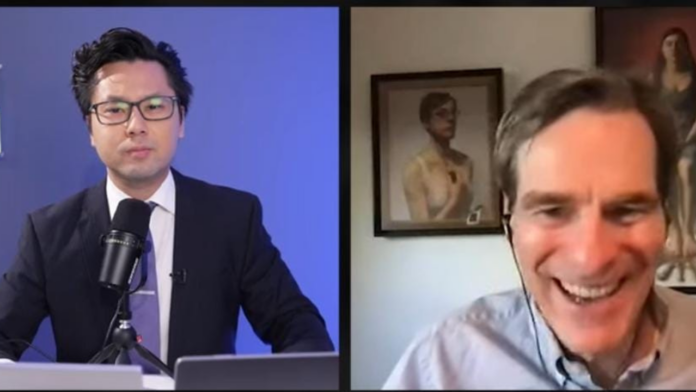In a recent video interview with David Lin on his new show, Stanford economist and Hoover Institution senior fellow John Cochrane discussed the causes of inflation and the impact of government debt on the economy. Cochrane highlighted that the amount of government debt relative to what is expected to be paid off in the long run is what matters for inflation, and not one year’s debt or deficits. He explained that faith in the government’s ability to repay its debt is crucial, as the lack of confidence can lead to inflation or debt crises.
Cochrane warned against the temptation for governments to focus on short-term solutions, such as borrowing money at low interest rates, as this approach can lead to market instability when people lose faith in the government’s ability to pay back the debt. He debunked the theory of price control as a solution to combat inflation, stating that it has consistently failed throughout history.
Cochrane also emphasized the importance of long-run growth for the economy and called for long-term reforms to revive it. He urged moving away from the focus on short-term deficits and recessions, and suggested that a steady price level would be a better target for the Federal Reserve, rather than the arbitrary two percent inflation rate. Additionally, he discussed the need for economic reform to address issues like poverty and income disparity and highlighted the importance of voter education and awareness in pushing for these reforms.
Cochrane further discussed the relationship between relative prices and the overall price level, emphasizing that confusing the two can lead to misunderstandings of inflation. He explained that inflation occurs when all prices and wages increase by the same amount and cautioned against attempts at implementing mandated price levels to prevent inflation, as such efforts have historically led to shortages, rationing, and economic disasters.
The Stanford economist expressed concern about potential inflation in the US due to long-term fiscal issues, even though the Consumer Price Index (CPI) number has decreased. He acknowledged that forecasting inflation is inherently difficult and no one can predict it with certainty.
Cochrane also touched upon the challenges of implementing supply-side microeconomic free-market policies to address economic problems, which require reforms of zoning laws, labor laws, occupational licensing, and the Environmental Quality Act. He called for politicians to focus on cleaning up “little messes” and addressing the root causes of economic issues, rather than relying on Keynesian economics and spending large amounts of money to secure reelection.
John Cochrane’s insights underscore the need for a fundamental shift in the approach to economic policy, focusing on long-term reforms and growth, rather than short-term solutions that can lead to market instability and inflation. He also emphasized the importance of voter education and awareness in pushing for economic reform and creating a more stable and equitable economic landscape.


